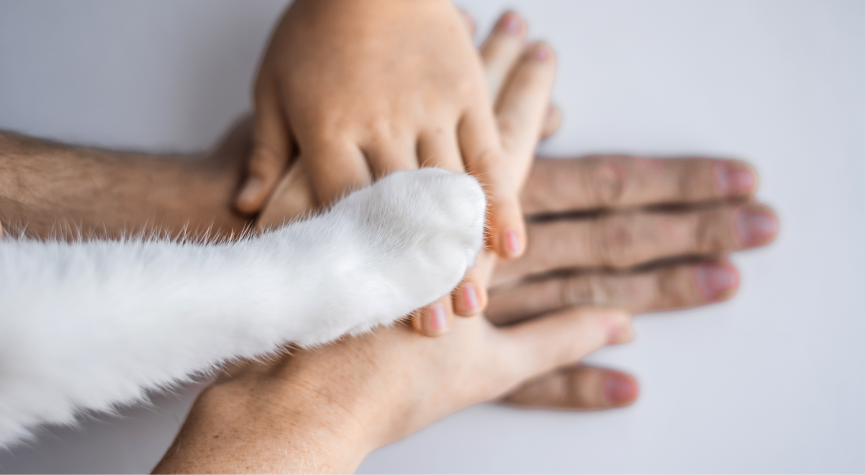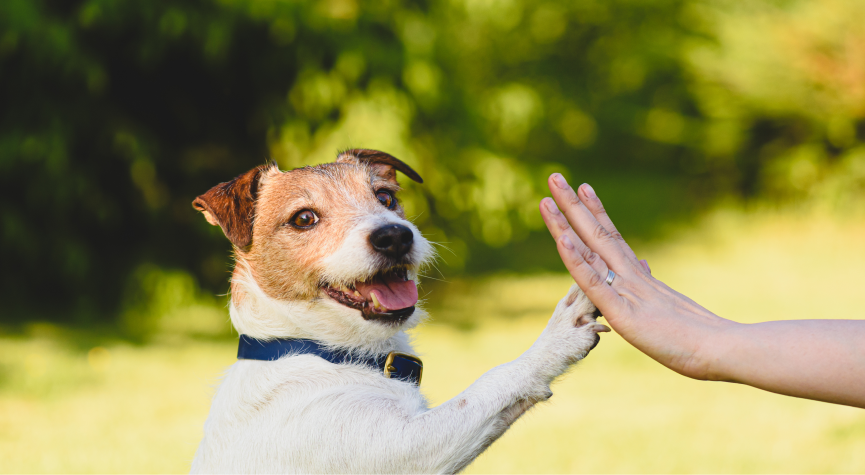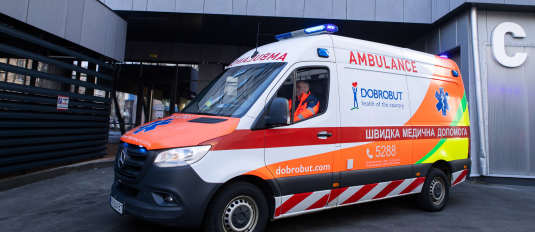Rabies: first aid after a bite
First aid
- Rinse the wound thoroughly with running water and soap for 10-15 minutes. This is extremely important in order to wash away the saliva and the virus contained in it.
- If there is no soap in direct access - just wash with water.
- If you get to water even after a few hours, the wound should still be thoroughly washed.
- After the wound is washed, dry the wound with a clean cloth.
- Treat the wound with any antiseptic, for example, an aqueous solution of iodine (povidone iodine, betadine, etc.).
- Consult a doctor for the prescription of specific drugs.
What drugs are used?
There are basically 2 drugs used in the prevention of rabies:
- Anti-rabies vaccine;
- Anti-rabies immunoglobulin;
What is the difference and what is needed when?
Rabies vaccine
Rabies vaccine is a special preparation containing particles of an inactivated (killed) virus that looks like the rabies virus. It is administered to activate the immune system, which begins to produce antibodies that can neutralize the virus.
Vaccination gives the immune system the necessary “instructions” on how to recognize the virus and stop it before it reaches the brain.
But a vaccine is a preventive measure. Why is it administered after a bite?
This is a fair question! Although the vaccine is usually used for prevention, in the case of rabies its role goes beyond the usual prevention of the disease.
The thing is that rabies has a long incubation period – usually about 2–3 months, but sometimes it can last even a year. During this time, the virus slowly travels along the nervous pathways to the brain. At this time, if the body has information about the virus and has time to produce enough antibodies, the disease will not develop and the person will remain alive.
And when should vaccination be started?
It is necessary to start vaccination as soon as possible after the bite, because we do not know how quickly the virus will move to the brain. It is also important to remember that there is no deadline for starting vaccination. As you remember, the virus can move from the wound to the brain for up to a year, so even if the bite by a suspicious animal occurred several weeks ago, you should start vaccination.
How many injections are needed? Is it really 40 injections in the stomach?
Fortunately, “40 injections in the stomach” is now a myth. The full course of vaccinations consists of 5 injections. The day of the 1st dose is considered day 0. The vaccine is administered on days 0, 3, 7, 14, 28.
The vaccine is administered, like the vast majority of other vaccines, intramuscularly into the deltoid area. In children under 2 years of age, it can be administered into the anterior-outer surface of the thigh.
Important! You cannot inject the anti-rabies vaccine into the buttock!!! If the vaccine is administered into the buttock, it is not counted!!!
As you know, the incubation period can be very short, even 5-7 days. During this time, the body may not have time to produce antibodies even if vaccination is started immediately. And in the presence of such a risk, ready-made antibodies should be administered, and this is anti-rabies immunoglobulin.
Antirabies immunoglobulin.
These are ready-made antibodies against the rabies virus.
It is administered in situations that are dangerous in terms of the rapid development of the disease.
When can this be?
- If a lot of viruses were initially ingested, then the time for reproduction at each stage will be less, and the disease will develop faster.
- The virus multiplies well in muscles and nerves, so if a lot of virus has been ingested, the time before the onset of symptoms will be less.
- Our mucous membranes are not only on the head, but also the epithelium is very thin compared to the skin, and much more permeable. And almost everyone has wounds on the mucous membrane. And even a minor wound is a gateway for the virus.
Given all these nuances, the following indications were formulated:
- Wide bites (more than 5 cm),
- Deep (reaching the muscles) bites.
- Any bite inflicted by wild carnivorous animals (lots of virus in saliva)
- Direct contact with bats;
- Any bite or sneeze of damaged skin in the area of: head; face; neck; hands; perineum; (lots of nerves, close to the brain, thin skin)
- Sneeze of mucous membranes, even without damage;
Immunoglobulin is injected into the edges of the wound and around the wound, so that the antibodies kill the virus. The faster and closer we deliver them to the virus, the better. It is not always possible to inject the entire required dose of immunoglobulin around the wound (for example, a finger wound), then the remainder is injected intramuscularly, but into a different area from the vaccine. (for example, the thigh)
Immunoglobulin, like the vaccine, must be administered as early as possible. But in the absence of immunoglobulin, only the vaccine is administered, and immunoglobulin is administered as soon as possible, but no later than 7 days from the moment of administration of the first dose of the vaccine.
It is also important that immunoglobulin, according to the current order of the Ministry of Health, must be administered in a hospital setting.
Animal observation
The first thing to note is that the WHO clearly states: in regions that are dangerous for rabies among animals, the availability of the animal for observation should not delay the start of vaccination. That is, in Ukraine, it is necessary to start vaccination and simultaneously observe the dog. The animal is observed for 10 days from the moment of the bite. If the animal is healthy and this is confirmed by a veterinarian, then vaccination is stopped. By this time, you will have time to receive 3 injections out of 5.
If you were bitten by a known domestic dog or cat, you can definitely identify that this is the animal that bit you. Then you can observe the animal. If it is not your animal, then find out the details of the animal's owner: the owner's full name, address, telephone number, nickname and breed of dog. (This information is needed by the doctor to fill out the documentation and ensure observation of the animal).
If it is a stray animal, you are not obligated to look for it or observe it.
Get vaccinated!
If you have been vaccinated before: 5 injections are not always needed. If a person has already completed a full course of anti-rabies vaccination in the past (prophylactically or after a bite) and has now had a new risky contact:
A new course is not needed, instead, only 2 doses of the vaccine are administered on days 0 and 3.
Immunoglobulin is not administered, since the body already has a memory of the virus. This scheme is valid provided that the previous vaccination was performed correctly and verified.
What vaccines are used in Ukraine?
Ukraine uses modern inactivated cell vaccines, not those that were previously administered in 40 injections into the abdomen. The most common vaccine in Ukraine is Indirab, manufactured by Bharat Biotech (India). Indirab is an inactivated, highly effective vaccine approved by WHO for post-exposure prophylaxis of rabies. It is administered intramuscularly, into the deltoid muscle (in children under 2 years old - into the thigh).
The vaccine cannot be administered into the buttock! This significantly reduces the effectiveness and the dose in this case is not taken into account.
What reactions are possible after vaccination?
Minor side effects are possible after vaccination against rabies:
- Pain, redness or induration at the injection site
- Weakness, headache, sometimes - subfebrile temperature
- Very rarely - allergic reactions
The vaccine can be combined with other vaccinations (including COVID-19), but it is advisable to do this in different parts of the body, with an interval of 1-2 days - at the doctor's discretion.
It is undesirable to interrupt the vaccination course. If an injection is missed - contact your doctor to correct the schedule.
If the animal is vaccinated against rabies, is it possible not to vaccinate?
There is no definite answer to this question.
If the animal is vaccinated against rabies regularly and on time, then the probability that it will be infected is zero.
But!!!
In case of any dangerous contacts, there is an emergency vaccination for animals, not only for people.
Often people do not know that vaccination should be carried out annually. If more than 1 year has passed since the last vaccination, then it is impossible to guarantee that the animal is protected from rabies without an antibody test.
The vaccine in animals is not always effective! For example:
- in large breeds of dogs;
- in old animals;
- in seriously ill animals;
- in animals that receive certain medications on a permanent basis.
An ordinary doctor does not know and cannot know many nuances, starting from whether your dog disappeared a couple of months ago and then came back with wounds and ending with whether your dog is taking medications that may affect the effectiveness of vaccination. Therefore, if there is a bite, the doctor will offer you vaccination. And only you can decide whether to start vaccination or not. Also, the risks that your animal may be infected with rabies can be discussed with a veterinarian who knows your animal well.
Only rabies and that's it?
It should be remembered that "rabies is not the only one". We must not forget about tetanus.. All protocols for the prevention of rabies pay attention to this. But it is worth remembering that the prevention of tetanus is not as urgent as rabies. There are several days to resolve this issue.
What not to do:
- Do not delay with wound treatment and vaccination!
Do not delay with washing the wound with soap and water. You can’t delay the start of vaccination and the introduction of immunoglobulin. Vaccination and the introduction of immunoglobulin should be done as early as possible after the bite. The less time passes, the greater the chance of avoiding rabies.
If there is a vaccine, but there is no immunoglobulin? We inject the vaccine! Then we look for immunoglobulin. It makes sense to inject immunoglobulin no later than 7 days from the moment of the first dose of the vaccine.
- Do not inject the vaccine into the buttock!
You cannot inject the anti-rabies vaccine into the buttock. It must be injected into the deltoid area. And only children under 2 years old can be injected into the anterior outer surface of the thigh.
Do not sew!
Bitten wounds do not heal! Suturing bite wounds creates an ideal environment for the virus to multiply! Stitches are applied only in rare cases. In case of prolonged bleeding to stop it. For large wounds, single guiding stitches can be applied.
- Do not kill an animal! Do not bury a dead animal!
If the animal is conditionally healthy, do not kill it under any circumstances! For city dwellers, this may sound wild, but believe me, for rural residents it is very relevant. If you have killed an animal, or it has died, in no case do not bury or throw away the animal's corpse! Because you will have to dig up the corpse and cut off its head for analysis! If the animal has died, you must report it to the local Laboratory Center ("sanitary and epidemiological station" in the old style).
How to behave after vaccination? What is possible and what is not possible?
This is a very common question… Unfortunately, there is still a myth that when vaccinated against rabies, you cannot:
- be in the sun
- eat yellow or red foods
- drink more than 2 cups of coffee per day
- steam in a bathhouse/sauna
- play sports
- drink alcohol
- get pregnant
- have sex…
ALL THESE MYTHS!!! You can lead a normal lifestyle during and after vaccination!
It should be noted that the World Health Organization (WHO) emphasizes that there is no safe dose of alcohol. Any amount of alcohol consumed can negatively affect health, increasing the risk of developing various diseases.
Rabies is an extremely dangerous disease that always ends in death after the first symptoms appear. Therefore, the speed and correctness of your actions after a bite or contact with an animal can be decisive in preventing the disease and saving lives. If you have even the slightest doubt about a bite, sneeze or scratch from a mammal, do not hesitate - consult a doctor and start vaccination!
Authors of the article - Kireiko Viktor Petrovych
Reviewer of the article - Bravistova Natalia Oleksandrivna



































%402x.png)
%402x.png)
